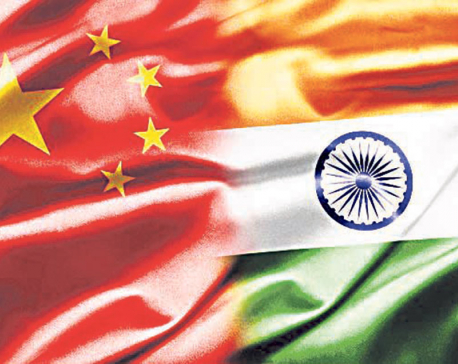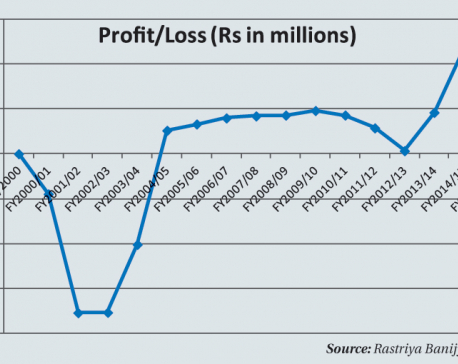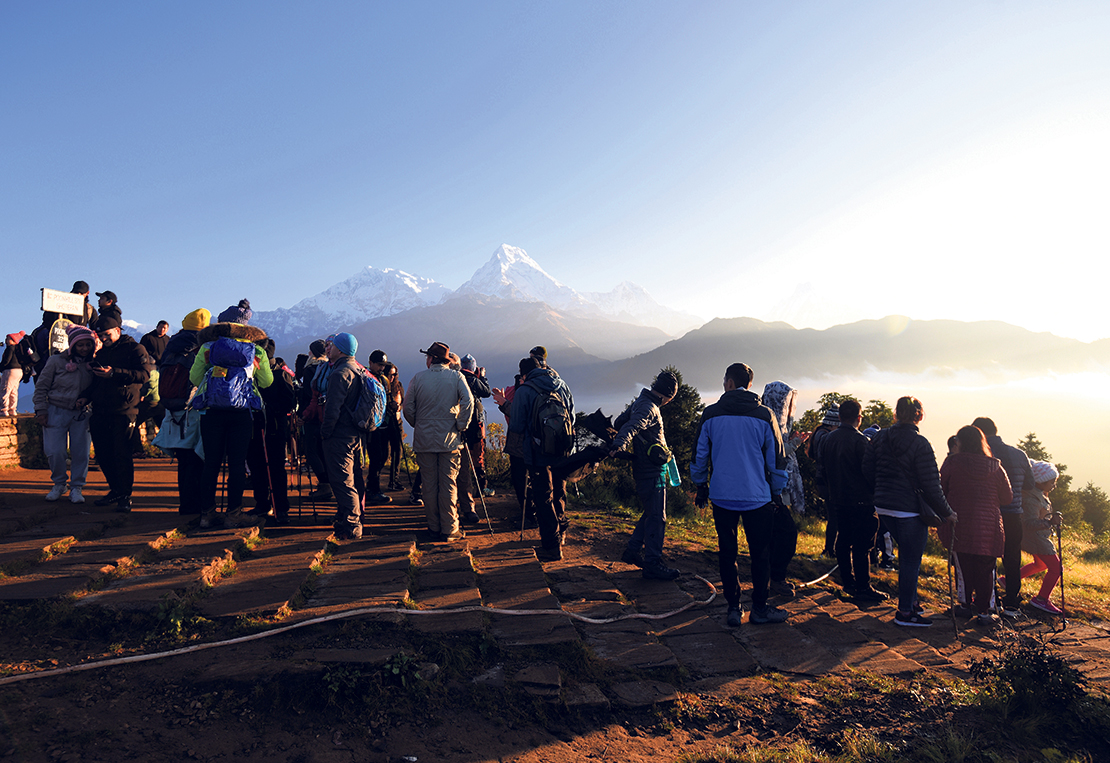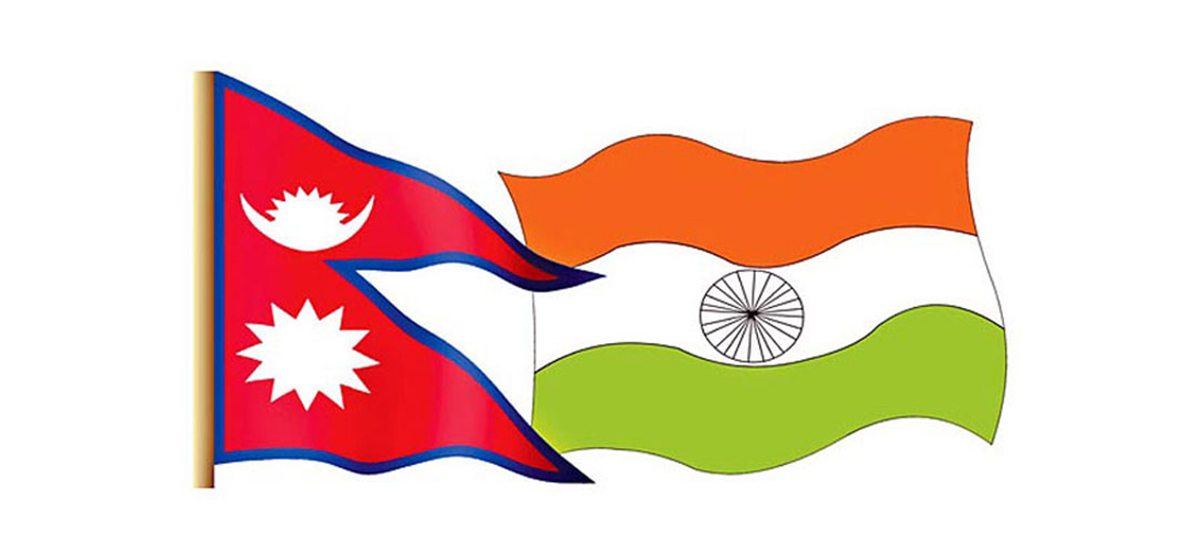
OR
Cabinet expansion
Prime Minister Pushpa Kamal Dahal is well on his way to forming the biggest cabinet, ever. With the two new ministers inducted last week, the 43-member team will likely see a few more new additions in the coming days. Whispers of change of guard in Singha Durbar are already making rounds in Kathmandu. One wonders why there needs to be such a jumbo cabinet, formed in clear contravention of constitutional provision on cabinet size, and at great expense of taxpayer money, in what could be the final leg of Dahal’s premiership. Like many other governments, Dahal’s has also failed to reduce rampant corruption in public institutions (as indicated by Nepal’s continuing slide down the Transparency International’s Corruption Perception Index) and to expedite post-quake reconstruction (with up to 600,000 people forced to live in rickety makeshift shelters this winter as well). And as of last month, in the first six months of this fiscal, the capital expenditure was a mere 11 percent, despite the budget being brought a month and a half in advance this year. This suggests that there are structural flaws in the operation of the ministries—the protracted bidding and procurement process in the big infrastructure projects one of them. The prime minister has clearly failed to use his clout to push through these vital projects. These are not hopeful signs. The addition of new ministers only validates the common perception that our political leaders only care about their vested interests and not about the bread-and-butter issues of common folks.
It is no secret that the Dahal government is adding ministers in order to increase the chances of passing the proposed second amendment of the constitution that has been tabled in the parliament. Since the country has no electoral threshold for parties to enter the parliament, there has been a mushrooming of political parties in parliament, which in turn has encouraged dirty horse-trading. Many ministries have been taken apart to bring minor parties into the government. This has essentially created chaos and confusion within these ministries. State ministers have no work to do and the bureaucracy is confused and directionless. Over time, such practices have made our politics and politicians unpopular among the people. It is therefore about time that we seriously thought about imposing an electoral threshold on the minimum number of votes that parties need to get in order to be elected into the parliament.
In this chaos and confusion, local elections, the first of the three sets of elections to be held in the next 12 months, are being pushed further and further away. Instead of creating an environment that is favorable for local elections, the government is expanding the cabinet. This suggests that despite the prime minister’s assurances to the contrary, his government is not serious about timely elections. The last time Nepalis voted for their own local representatives, their first line of contact with the government, was way back in 1997. Twenty years without these grassroots-level elections has taken a heavy toll on Nepal’s nascent democracy. This is why the government should desist from needless distractions like cabinet expansion and immediately start clearing the way for local elections. To start with, how about immediately filling the three vacant posts of election commissioners?
You May Like This

Not so big fish in a big pond
Krishna Prasad Sigdel’s book reads like a primer on Nepal’s foreign policy and international affairs. It also deals with the... Read More...

Productive sector makes big chunk of microfinance loans
KATHMANDU, Dec 31: A majority of microfinance loans mobilized were to productive sectors, according to a report. ... Read More...

Despite big losses, Banijya Bank issuing bonus to staff
KATHMANDU, Aug 12: Rastriya Banijya Bank has decided to distribute Rs 870 million in bonuses to its employees despite its... Read More...



Just In
- 16 candidates shortlisted for CEO position at Nepal Tourism Board
- WB to take financial management lead for proposed Upper Arun Project
- Power supply to be affected in parts of Kathmandu Valley today as NEA expedites repair works
- Godepani welcomes over 31,000 foreign tourists in a year
- Private sector leads hydropower generation over government
- Weather expected to be mainly fair in most parts of the country today
- 120 snow leopards found in Dolpa, survey result reveals
- India funds a school building construction in Darchula







_20220508065243.jpg)








Leave A Comment